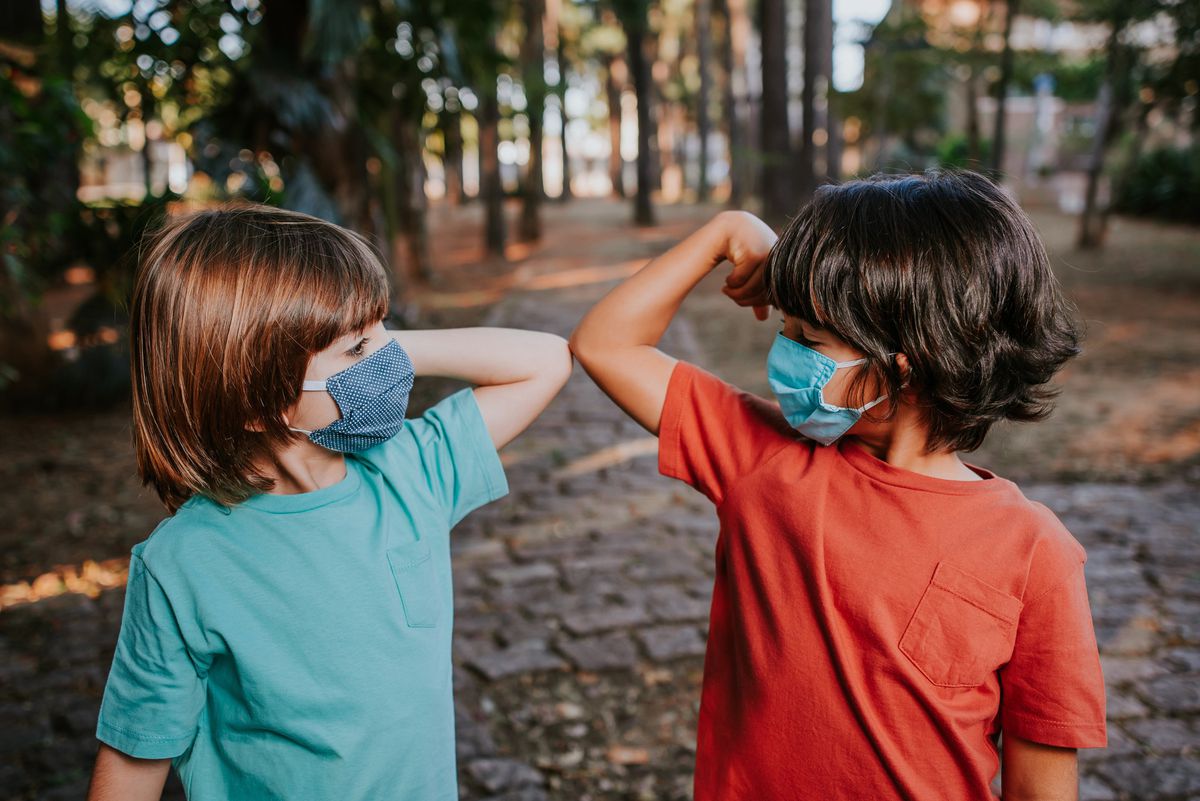 ATLANTA, GA-While fewer children have been sick with COVID-19 compared to adults, children can be infected and get sick with COVID-19. Children can spread the virus that causes COVID-19 to others. The symptoms of COVID-19 are similar in adults and children and can look like other common illnesses, like colds, strep throat, or allergies. The most common symptoms of COVID-19 in children are fever and cough. Monitor your child daily for symptoms, keep track of who your child comes into close contact with. If your child gets sick, keep them home and call their healthcare provider.
ATLANTA, GA-While fewer children have been sick with COVID-19 compared to adults, children can be infected and get sick with COVID-19. Children can spread the virus that causes COVID-19 to others. The symptoms of COVID-19 are similar in adults and children and can look like other common illnesses, like colds, strep throat, or allergies. The most common symptoms of COVID-19 in children are fever and cough. Monitor your child daily for symptoms, keep track of who your child comes into close contact with. If your child gets sick, keep them home and call their healthcare provider.
Most children with COVID-19 have mild symptoms or have no symptoms at all. However, some children can get severely ill from COVID-19. They might require hospitalization, intensive care, or a ventilator to help them breathe. In rare cases, they might die.
CDC and partners are investigating a rare but serious medical condition associated with COVID-19 in children called Multisystem Inflammatory Syndrome in Children (MIS-C). We do not yet know what causes MIS-C and who is at increased risk for developing it. Learn more about MIS-C.
The most common symptoms of COVID-19 in children are fever and cough.
The symptoms of COVID-19 are similar in adults and children and can look like other common illnesses, like colds, strep throat, or allergies. The most common symptoms of COVID-19 in children are fever and cough, but children may have any of these signs or symptoms of COVID-19:
- Fever or chills
- Cough
- Nasal congestion or runny nose
- New loss of taste or smell
- Sore throat
- Shortness of breath or difficulty breathing
- Diarrhea
- Nausea or vomiting
- Stomachache
- Tiredness
- Headache
- Muscle or body aches
- Poor appetite or poor feeding, especially in babies under 1 year old
What you can do
Pay particular attention to:
- Fever (temperature 100.4 °F or higher)
- Sore throat
- New uncontrolled cough that causes difficulty breathing (for a child with chronic allergic/asthmatic cough, see if there is a change from their usual cough)
- Diarrhea, vomiting, or stomachache
- New onset of severe headache, especially with a fever
If your child or you were around someone who has COVID-19, someone from the health department may contact you for contact tracing. Speak with them and follow their advice.
If you are sick with COVID-19, you can take precautions to help prevent spreading the virus to your child and others.
If your child has symptoms and may have been exposed to the virus that causes COVID-19 or has been in an area where the virus is spreading,
- Keep your child home
- Call your child’s healthcare provider to discuss whether your child needs to be evaluated or tested for COVID-19. If you suspect that your child or someone they know has COVID-19 or has come into close contact with someone who has COVID-19, visit Coronavirus self-checker. This online tool will help you decide when to seek testing or medical care for your child.
- Protect yourself from COVID-19 while caring for your child
- Notify your child’s school that your child is sick. Also inform the school if your child has had a COVID-19 test and what the result is, if available.
- Review your child’s school (or other childcare facility) policies related to when a child who has been sick can return
- Bring your child back to school or other in-person activities only after they can safely be around others
If your child is sick but a healthcare provider tells you that your child doesn’t have COVID-19, your child may still need to stay home for some time. Before bringing your child back to school or other in-person activities, discuss your child’s illness with their healthcare provider and review your child’s school (or other childcare facility) policies related to when a child who has been sick can return.
Do not delay seeking emergency care for your child because you are worried about the spread of COVID-19. Emergency departments have infection prevention plans to protect you and your child from getting sick with COVID-19 if your child needs emergency care.
If your child is showing any of these emergency warning signs, seek emergency medical care immediately.
- Trouble breathing
- Pain or pressure in the chest that doesn’t go away
- New confusion
- Can’t wake up or stay awake when not tired
- Bluish lips or face
This list does not include all possible symptoms.
Call your child’s healthcare provider for any other symptoms that are severe or concerning to you.
Media Release/Centers for Disease Control and Prevention


